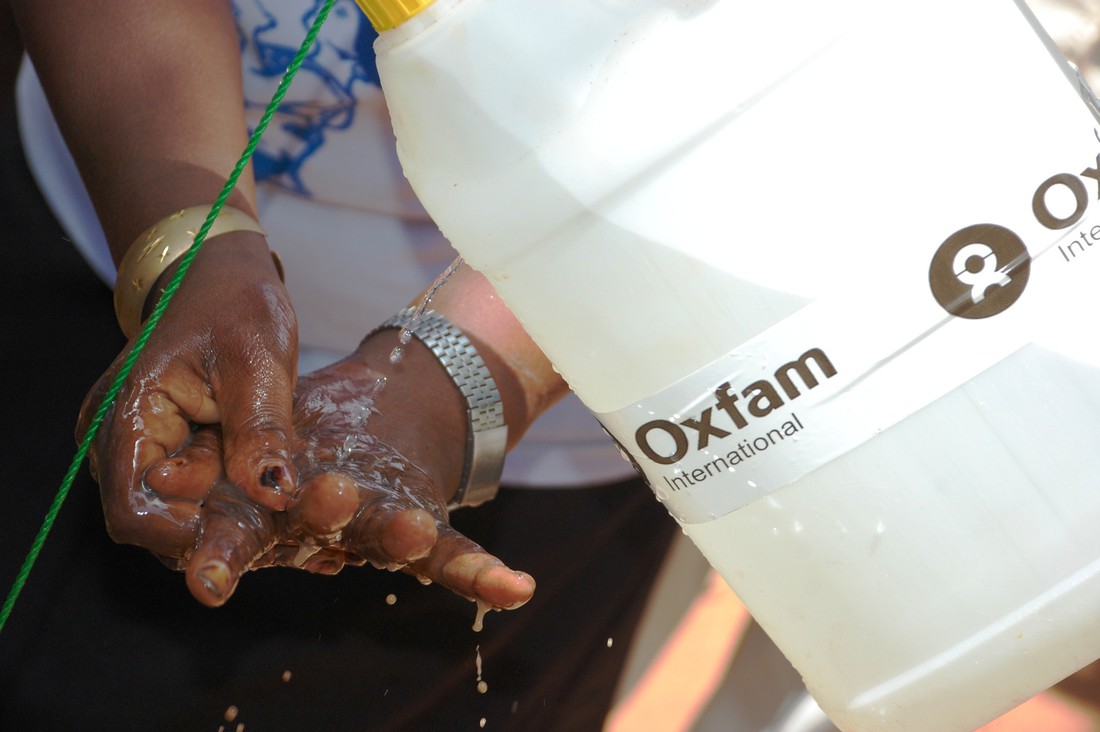by Jamie Livingstone, Head of Oxfam Scotland
I’ve never washed my hands so often.
It’s remarkable that such a simple, every day activity, is one of the keys to slowing the spread of a global pandemic.
For decades, Oxfam has worked with partners in some of the world’s worst humanitarian crises to provide lifesaving water and sanitation facilities and to promote good hygiene practices like handwashing to help tackle diseases like cholera and typhoid, as well as Ebola.
Never did I imagine that, here in Scotland, washing our hands would become quite so vital.
But hand washing alone isn’t enough.
Oxfam is deeply concerned about how the poorest and most vulnerable people will be hit by the Coronavirus – both at home and around the world.
New research just released by Oxfam has revealed the economic fallout from the Coronavirus pandemic could push half a billion more people into poverty unless urgent action is taken by world leaders.
It’s an astounding figure. Coronavirus is sending shockwaves around the world, and it’s the poorest who are the most vulnerable when crises strike: people on the breadline simply won’t be able to cope with the loss of vital income when they are sick, or when businesses close and jobs are cut.
Poverty hits women the hardest, wherever they are in the world. And, as carers, women now also find themselves on the frontline of this crisis.
Here in the UK, not only do women make up the vast majority of our NHS and social care workers, they also shoulder the bulk of unpaid care amid a surge in caring for sick relatives and looking after children at home. Many carers and their families face an enhanced risk of contracting the virus; a reality highlighted by the awful news of the death of home care worker, Catherine Sweeney, from Dumbarton.
Yet many carers were already trapped in poverty and now face new pressures. Many key workers – not just in the NHS and the long under-valued social care sector, but in places like supermarkets – also deliver unpaid care for family at home. For carers to help combat Covid-19 we must give them the care, protection and money they deserve now. We must then end, for good, the under-valuing of their work.
But all those in poverty, and the many people at risk of being pulled into it, need our support.
The UK and Scottish governments have introduced welcome measures, including protection for workers who are laid off and a substantial rise in the Scottish Welfare Fund. But we know this will only help if people can access crisis cash quickly and worryingly, before this crisis, 55 per cent of people told us they wouldn’t know where to go to get emergency cash if they ran out of money to buy food.
Understandably, right now we’re all worried about what Coronavirus means for us, our loved ones and our communities. But Covid-19 doesn’t respect town, city, or national borders. No one is safe until we all are, and we cannot forget the world’s poorest.
Oxfam is calling on world leaders to agree an economic rescue package to keep poor countries and communities afloat ahead of key global meetings next week. It’s encouraging that more than 200 MPs have backed calls for the UK Government to do more to help, before it’s too late.
If we’re to get through this pandemic we must protect the vulnerable, wherever they are. All our futures depend on it.
This article was originally published in The Herald.
